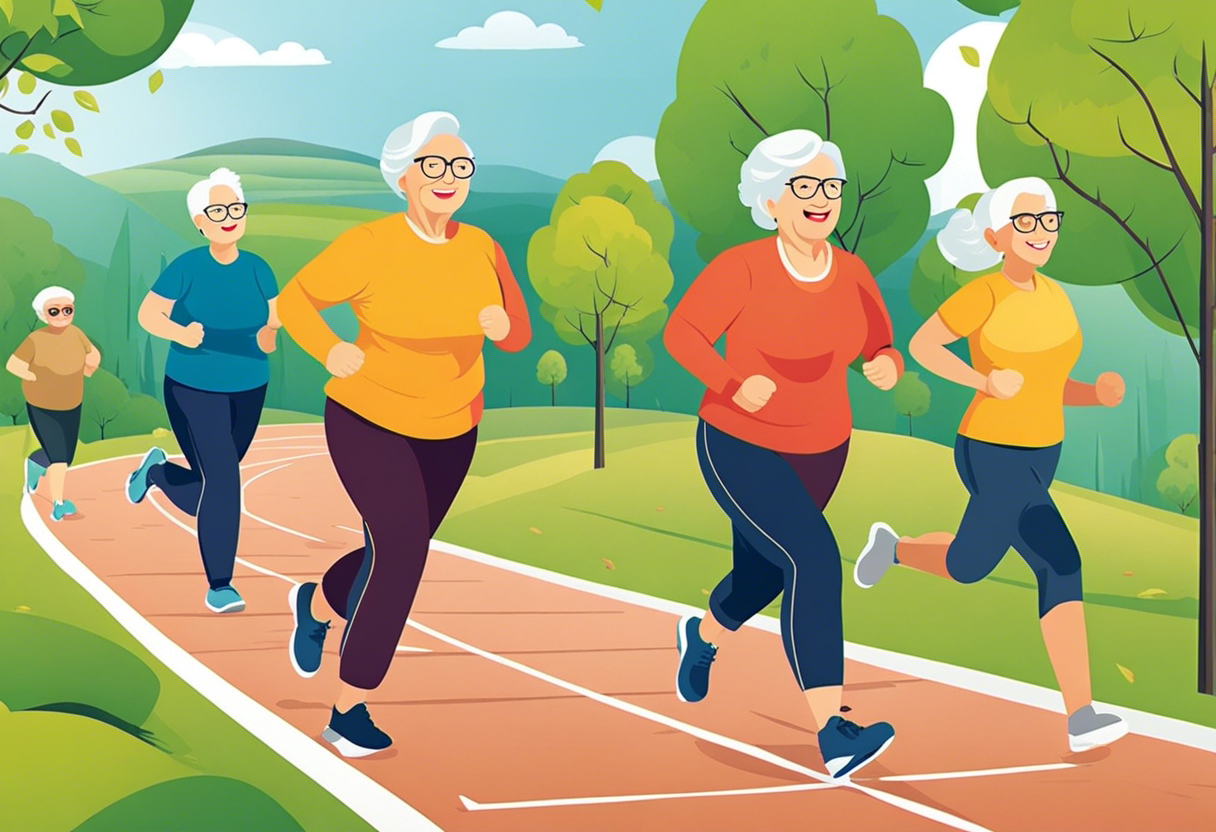Mastering the Golden Years: A Revealing Guide to Top 5 Strategies for Optimal Elder Health and Living
This first slide focuses on the importance of maintaining excellent mental health during the golden years. Many studies have shown a clear correlation between mental health and overall health outcomes. Embracing positivity, practicing mindfulness, and socializing can all contribute to improved mental well-being. As a key strategy for achieving optimal elder health and living, positive mental health sets a solid foundation.
Research confirms that older adults who stay positive tend to be healthier and enjoy better functionality. Practicing mindfulness, such as meditation or yoga, can also help in managing stress, sleep better, and reduce blood pressure. Beyond physical benefits, mindfulness leads to improved cognitive functions, keeping the brain sharp and agile.
Engaging in social activities is another technique to boost mental health. Activities that foster interaction, such as joining a local senior group or participating in community functions, promote a sense of belongingness and combat feelings of loneliness or isolation.
Dedicated professionals in geriatric mental health can provide guidance and support. These experts specialize in the emotional and psychological issues faced by seniors and can advise on treatments and therapies.
Physical Activity: A Vital Boost

Slide two highlights the value of regular physical activity for elderly individuals. Exercise is known to significantly enhance quality of life in the golden years, improving mobility and strength to reducing the risk of many health conditions.
Exercises tailored for seniors focus on improving flexibility, cardiovascular health, balance, and strength - elements crucial for independent living and overall wellness. Regular walks, gentle yoga, water aerobics, or Tai Chi can be terrific for seniors.
Studies have highlighted the potency of regular physical activity in preventing heart disease, stroke, type II diabetes, and some cancers. Plus, exercise can help maintain a healthy weight, which can reduce the burden on joints and lower osteoarthritis pain levels.
Physical activity can also foster better mental health. This is because regular exercise release endorphins, the body's natural mood boosters. So apart from a healthier body, physical exercise can promote a brighter disposition and a fresher mind.
Balanced Nutrition For Sustained Health

Slide three delves into the critical role of nutrition in ensuring optimal elder health. Adapting the diet to accommodate the body's changing nutritional needs helps in maintaining a robust health profile and keeping diseases at bay.
The diverse nutritional needs of seniors include higher fiber intake for better digestion, sufficient protein for maintaining muscle mass, and essential vitamins and minerals, notably vitamins D and B12 and calcium.
In addition to following a balanced diet, other vital aspects to consider are staying hydrated and practicing portion control. Dehydration can often be a pressing issue for seniors, and overeating often leads to obesity and associated health problems.
Nutritionists specializing in elder health can offer personalized plans that ensure each individual's unique nutritional requirements are met.
Regular Health Screenings

The importance of ongoing health monitoring, emphasized in slide four, cannot be underestimated when it comes to optimal elder health and living. Regular check-ups and screenings can prevent or detect diseases early, allowing timely, effective treatment.
Encouragingly, most health issues that affect seniors can be managed better if discovered early. Regular screenings, such as heart tests, diabetes checks, cancer screenings, and mental health evaluations, pave the way for proactive health management.
Healthcare providers may also recommend additional screenings based on a senior's family medical history or individual risk factors. Timely vaccination is equally crucial in helping prevent diseases, particularly the seasonal flu, pneumonia, and shingles.
Stimulating Intellectual Engagement

This final slide underscores the value of intellectual engagement in mastering the golden years. Continuing to exercise the brain can ward off cognitive decline, stimulate curiosity, and enhance life quality.
Engaging in intellectually stimulating activities promotes cognitive health and memory. These activities include reading, writing, playing strategy games, doing puzzles, learning a new language or skills, and even volunteering, which also offers social engagement benefits.
Studies have linked lifelong learning with reduced risks of cognitive decline and improved overall wellness. Community centers, libraries, and colleges often offer exciting programs catered for seniors, making intellectual growth accessible and enjoyable for all.
The potent combination of brain health and social connections further echo the interconnectedness between these five strategies for optimal elder health and living.